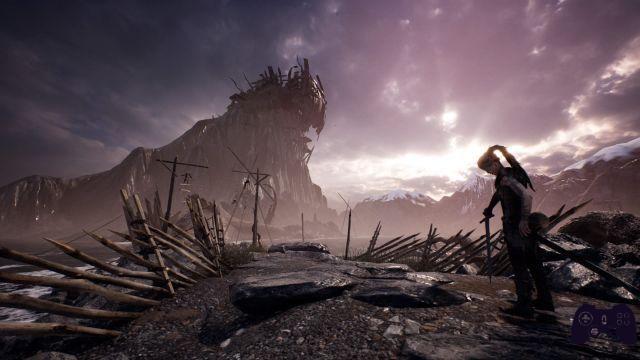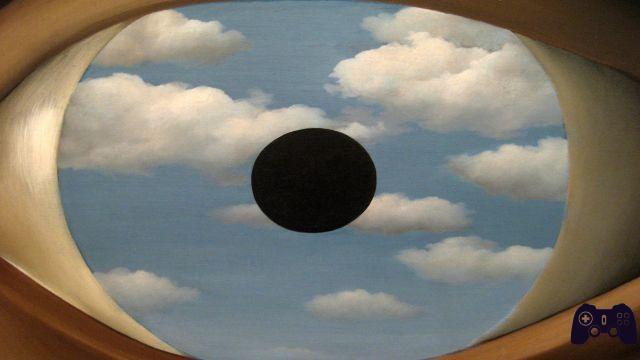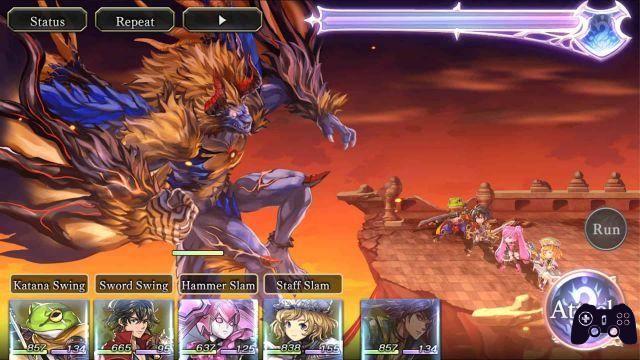
Gacha. A strange term, with an oriental flavor, of which however you should not ignore its existence: it could be crucial for the future of video games.
You have probably found it somewhere, mentioned on the internet or on some thread on a social network. Perhaps, you have even happened to read it in one of the articles on this site or one of our posts on Facebook. But you didn't understand what it is, and on Google the explanations were of little help. Just to fill the role of Jiminy Cricket, I'm here to guide you to understand this term and its implications. And trust me, it is an explanation you want to hear.
You want to hear it because it could be you, your loved ones, or the entire video game industry. It is something already seen but at the same time new, which takes and knows both the past and the future; but there are no best intentions behind it, especially for us consumers.
Because the real prize of the machine is not the toy that comes out, but the person who used it
Gachapon - The origin of the term "gacha" in video games
As Orwell said in his incredible "1984", whoever controls the past also and consequently controls the present. Is very important know the origin of what we are dealing with. It will probably also help you to understand the idea behind it more easily.
The term "gacha", as you may have understood, is a concept that comes from the Rising Sun and derives directly from another completely Japanese name: "Gachapon" (ガ チ ャ ポ ン). These are machines that release toys, not too far from what we can find in some toy shops or similar places. A transparent plastic box with many small toys inside. Insert a coin, turn the crank and from a special hole comes the ball with a random toy among those present. But since the Japanese love onomatopoeias a lot, instead of calling them machines with toys like we would, they called them "Gachapon".
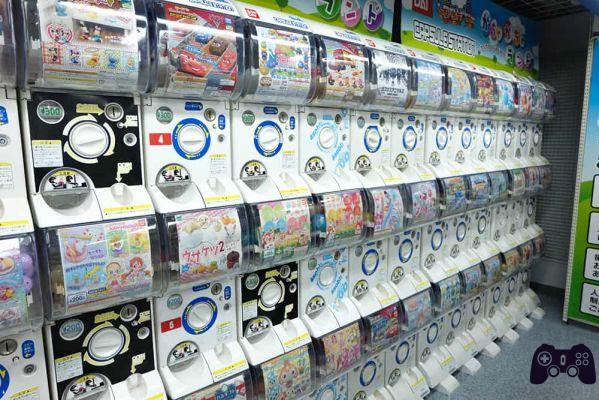
The explanation is simple: it is a reproduction of the gacha-gacha sounds and the pon sound, respectively of the crank and the falling toy. A machine that releases toys, basically. The problem is that no one would start selling toys in such a strange way if there weren't a big gain behind.
If for us Westerners this type of distributors have remained quite in the background, compared to other types of toys, in the Rising Sun the perception was different. The Japanese machines worked, in fact, on a very simple principle, which they then shared with the videogame counterpart.
If in most cases, in fact, you will get a toy that costs less than the money entered, there is a tiny chance of getting a very rare one.
This, for obvious reasons, greatly influences the consumer: in the hope of obtaining the jackpot, you continue to spend, even over a long distance in time. A gambling thumbnail, suitable for children, but which uses the same and identical rules that we can find in a slot machine.
From Gachapon to Gacha - One short step
As you may have guessed, it is a model extremely lucrative, so much so as to inspire even video game producers to replicate this type of monetization, while also treading the general quality of the prizes of these Gachapons. The first games of the "gacha" type were very simple mobile titles, which slowly and inexorably invaded the Japanese gaming market from 2012 onwards. Also noteworthy is the fact that in the East the mobile market is the one that has expanded the most, leading to the fortune of this type of games.
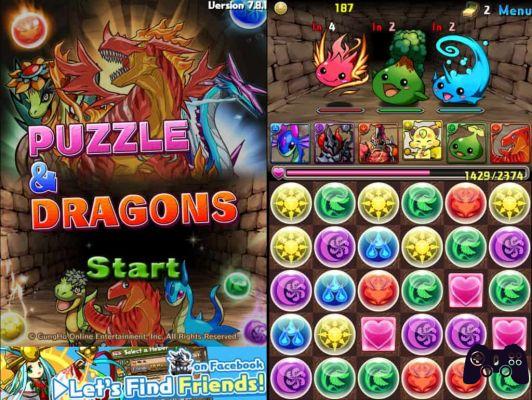
One of the first titles of this mold, Puzzle & Dragons, not far from a western Candy Crush, was the first mobile video game to earn a billion dollars in the world, surpassing even the most famous Clash of Clans. Just as the gachapons easily made it successful in real life, so in a few years the same fate also happened to video games. But this model has done nothing but evolve under this new guise.

To learn more:
Pokémon GO teaches loot boxes
Following, for example, the success of the pachinko (another all-Japanese invention), these games have begun to focus on the success of already known and recognized series. The apotheosis of this phenomenon was Fate / Grand Order, to date one of the most important and profitable gachas, both in Japan and in the West, and son of the famous Fate series. Thanks to the enormous success of this title (comparable in Japan to the launch of Pokémon Go and with earnings equal to 4 billion of dollars worldwide in 2019), many copy-titles have sprung up, cementing some of the characteristics and canons of this monetary model. The mobile market, perhaps the largest and most profitable in the world of video games, has therefore received a huge boost of titles in this mold, leading to a rapid explosion.
Gacha game - The ingredients of the disaster
So what are the ingredients of this explosive cocktail? Often these are games belonging to the JRPG genre or puzzles with a party of characters that have to overcome different stages. These are added (similar to GAAS) as time passes, or as seasonal events arrive.
Often to empower yourself you have to recover materials in combat or weapons and armor, which we must then equip to our characters to give us the possibility to continue with increasingly difficult bosses. This is, however, a long, gradual process and that requires a lot of hours and perseverance, called with the English words “farm (-ing)” and “grind (-ing)”. The solution is served to gamers on a silver platter: it is always possible shell out real currency to get what you need, or put your money into the different Gachapons in the various stores, to hope to get a strong character who will instantly improve the strength of the party.
A gacha title creates problems only to solve them for the player, without the player ever asking for anything
In subsequent evolutions it has then taken elements from different genres such as daily quests typical of MMOs and the social and co-op mechanics present in them. In many titles it is in fact possible to interact with other players by helping them or by borrowing some of their characters. However, it is almost never of direct interaction, but limited in order to create more interest in the player himself. All elements that revolve, in one way in another, around the possibility of buying something within the game.
Purchases are always in front of our eyes. And that's why we shouldn't be surprised when we hear news of people spending dollars 70,000 on a gacha.
How can gachas be profitable?
Although we have learned about the mobile market in recent years, nothing has yet reached the effect and the amount of money that runs for gacha titles. But how do these games, which rely on minimal gameplay and are nothing more than money-eating machines, to be so successful?
The question is simple: gacha video games know their players very well, and they adapt them artfully.

Starting from the anime aesthetics quickly adapted to favor the public of the Rising Sun, where this phenomenon was born and developed, up to the social implications that these games have on those who play them. That's all prepared with incredible attention. Just think small to understand these effects: if you see all your friends suddenly start playing a new game and brag about their successes, aren't you curious as to what you'll get in the game?
The same social mechanism is triggered for gachas: you want to prove your worth to others and to yourself and if you don't succeed with luck… there is always money that can do the trick. Add us then the long and exhausting farming, the daily missions and the stamina that recharges over time, and you will have one of the worst formula ever to come out in video games. There is a complete abstraction of the rewards, and even when you get what you want there are new challenges to be faced, in a long and endless cycle, so they never stop being unsatisfactory to the player. It is therefore a Ouroboros constantly biting his tail, behind the gamers.
Eager for the same success, many developers have decided to emulate the larger titles. However, this has made the market bigger, starting from Asia and reaching us in the West, paving the way for new horizons of the phenomenon.
The future of the gacha model
Alongside the great Japanese projects were the other countries of the East. First of all, South Korea and China. They have begun to introduce more and more gacha titles to the mobile market (extremely profitable in their respective countries as well), with ever higher quality. For example, while large companies such as Tencent, which is now a power in the gaming world, have invested in the titles that raged in the West, such as League of Legends, China has also prepared other plans.

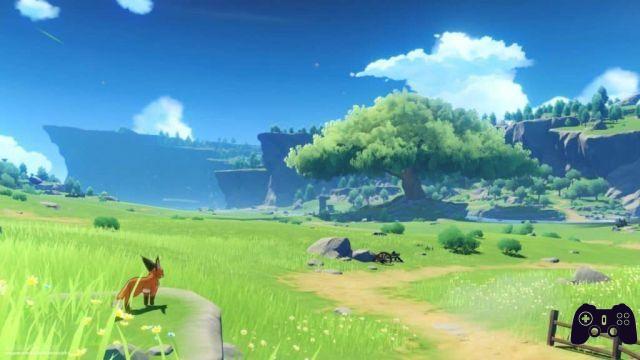
Observing the successes encountered in the Rising Sun, they therefore decided to replicate the formula and invest in it, fully understanding the potential of the tool and of this marketing model. From this idea, games like Azur Lane, Honkai Impact, and finally even a hit like Genshin Impact. The latter had an unusual media impact. Not to be underestimated are games like Fire Emblem Heroes and Pokémon Masters, created by none other than Nintendo, or the mobile version of Yu-Gi-Oh !, Duel Links.
These are all more steps that this marketing model has taken within our industry. Like some kind of virus, it has begun to bring out more and more mobile games from different popular series. It is therefore not excluded that, now, with the arrival of the aforementioned Genshin Impact, even the most unexpected video games will follow this wave of popularity of the model. Precisely because of this, we should be ready to see more and more games, and of higher quality, that abuse all its peculiar characteristics. It is not excluded that more and more will arrive, and knowing everything they represent could be extremely important.
The Gacha Menace - Why Should We Be Careful?
However, we should be careful, because the effects this type of monetization can have on the industry are numerous. We know that the video game world is one of the worst, among its crunches, its ad personam attacks and the general unsustainability of everything that revolves around it. It is absolutely not excluded that the developers try to cling to this structure to try to save their skin.
What they are not considering, however, is the danger of the gachas themselves. If microtransactions are bad for the industry, the whole gacha structure has gods very serious effects on the gamers themselves. First of all, these games do not bring a healthy view of the consumer: the intention is not to offer a good product, but to create an ecosystem, similar in all respects to an arcade, to get the most from gamers.
Most of the time spent on these games is nothing more than wasted time, doing things we don't care about to get things we don't care about.
This is not a trivial matter: in a society like ours, the continuous and prolonged attention of a possible consumer is one very expensive bargaining chip. Everything is accessible, and is accessible quickly and at low cost, this means that in order to earn more from the players you can not help but press on their psyche. The typical tricks of this type of marketing do nothing but follow this idea.
Just think of the dopamine-induced disruption of what is unregulated gambling in Gachapon within the game, to understand the gravity of the situation. We are playing with fire, in all senses.
Gacha means "danger" and we should stop it
Since their birth in Japan, they continue to fight because they are there lives at risk because of this system, against which the whole world arrives unprepared. The people most affected by this type of game are, of course, the weakest: children and Hikikomori. They are people who can easily fall victim to the gambling presented, which is much more serious than a simple pack of cards, due to the whole structure that revolves around it.
The responsibility for defending the weakest lies entirely in our hands, although we do not have a direct word on the laws that control the gacha.
This type of structure is not only toxic to the entire gaming world, it is also truly and genuinely dangerous, if not for us for our son, or our siblings. Because they appear as cheerful things, made for children or otherwise innocent, they make us believe that in truth what we are doing is not dangerous. Still, it is something that can destroy a life. Which can make you forget the reality. Indeed, it could make us forget why we play. Because these are anti-video games: they don't teach anything, they're just money machines.
There are those who even manage to forgive this model, to find excuses. As if in front of us we did not have a real danger of which we do not know the precedents. Perhaps, we will not be able to erase the gachas from the world, but for once, we could at least try to understand them.
The weapon to destroy Metal Gear, in the end, was awareness.





